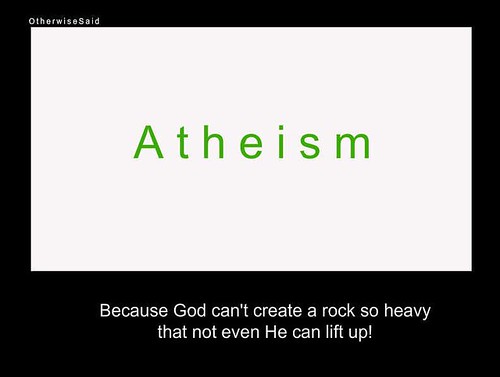By WizenedSage (Galen Rose) ~ This article is intended as a little head-to-head talk with Christians concerning their “deal” with the faith. As you surely understand, your acceptance of the Christian creed is essentially a deal to abide by and support the Bible as the founding document of Christianity.
When people get involved with movements or religions it usually means they have bought into the belief system and objectives of the movement or religion (unless they have been coerced). Of course, as a practical and moral imperative they should periodically reconsider their involvement. As new information becomes available, or a person’s outlook or goals change, he should consider whether there is a deal-breaker involved; that is, a piece of information that causes the person involved to decide that he can no longer support and promote the beliefs and objectives of the movement or religion.
I will illustrate all this with reference to Nazi Germany, but I am not implying that Nazism and the Christian religion have anything of substance in common. The focal point here is the individual and his choices regarding the movement in question.
Imagine yourself in 1930s Germany during the rise of Hitler and Nazism. This was a time of shame for the German people. They had lost WWI and been reduced to widespread poverty by the destruction of war and demands for excessive reparations by the victors. Then, along comes the Fuhrer, promising to restore the pride and prosperity of your country. Indeed, he succeeds in large measure, reducing unemployment while rebuilding the nation’s military. There is great pomp and ceremony, with parades, rousing speeches, modern aircraft fly-overs, etc. There is hope for the future, and it is practically tangible (see “The Will to Power,” a brilliant and fascinating propaganda film of the period to get a feel for this).
You become invested - a believer in the power and promise of a great new Germany under Hitler. Nazism makes sense to you, since it appears to be working, to be producing much to be proud of.
Then comes the anti-Jew rhetoric that the Jews are trying to rule the world and they are somehow responsible for Germany’s loss in WWI. You are doubtful of these claims, so you ask, Is this a deal-breaker? Then you see the Jews, Gypsies, and opposition politicians being rounded up and transported to who knows where, and there are rumors that they are being imprisoned or killed. And you have to ask again, Is this a deal-breaker? Should I continue to support and promote the Nazi movement, which is now pretty certain to be involved in reprehensibly immoral behavior? Then the Nazis invade a neighboring country on a very suspicious pretext, then another country, and another . . . Isn’t there a deal-breaker here somewhere?
You see, one should reconsider constantly his involvement in any movement or religion, as more information becomes available. Ethically, and practically, it makes sense to be looking for the deal-breaker. Of course, one hopes he never finds it, but can he in good conscience just turn a blind eye to the evidence as it unfolds before him? Who would that benefit? Think of the millions who supported the Nazi movement as it practiced genocide and involved the whole world in a horribly destructive war. When should the average German citizen have recognized the deal-breaker? Should he have just dutifully marched behind the Fuhrer as he systematically destroyed country after country?
Now, I can’t say when the average German should have recognized the deal-breaker, the Nazi action that should have caused him to remove his support, and perhaps even begin working against the regime. I can only say that any German with his eyes open, who gave some thought to what was going on around him, at some point should have recognized a deal-breaker. Perhaps when the Nazi government began destroying Jewish businesses and curtailing the rights of German Jewish citizens? He might not have been able to do anything constructive against the regime, especially if he was in uniform, but in his own mind he should have come to disagreement with the Nazis and removed his support to the best of his (likely limited) ability.
Now, with that lesson behind us, let’s take a look at the Bible. It was written two to three thousand years ago, by mostly anonymous authors. Many people claim those authors were inspired by a god as to exactly what to write. I think we may be able to test this claim from the evidence of the Bible itself, provided we are open to looking for possible deal-breakers – and those who are not open haven’t learned a thing from the brief history lesson above. If you choose to be that foolish, and willfully blind, then you might as well stop reading right here.
The Bible is a primitive work dreamed up by superstitious men, and probably no other book of the Bible more clearly attests to this fact.Often, a deal-breaker is found in the fine print, the part of a contract folks often don’t read. As a Christian, you essentially have agreed to support, abide by, and promote the Bible since it is the founding document of your religion. You are in a sense identified with and by your Bible. You are told to reflect the values of that Bible as one fully invested in its wisdom and Truth. But have you actually read the fine print on this deal, and thought seriously about it? Have you gone beyond the parts of the Bible your priest or pastor is always talking about? Have you read the parts he never talks about, the parts he ignores?
Well, what’s in those parts, you might ask. Okay, let’s take a look at just a few of those lesser known parts - the Bible’s fine print, so to speak. Here’s an interesting passage (Leviticus 20:13):
“If a man also lie with mankind, as he lieth with a woman, both of them have committed an abomination: they shall surely be put to death; their blood shall be upon them.”
This is an obvious reference to homosexuality. It states very simply and clearly that homosexuals should be executed. What is even less known is that this book of Leviticus begins, “And the LORD spake unto Moses, saying. . .” You see, according to the Bible, the execution of homosexuals is a direct command from god.
Now, do you still think the Bible was really “inspired” by god? Would a “loving” god actually command such a thing? Doesn’t this sound a whole lot more like the raving of a primitive man with an unevolved morality? Could this be a deal-breaker for you? Should you be supporting a book which commands the execution of homosexuals? Do you really want to be identified with such a book?
So, maybe this is just some kind of misunderstanding? Well let’s look a little further. Here’s another piece of the fine print (Deuteronomy 21:18-21):
“If a man have a stubborn and rebellious son, which will not obey the voice of his father, or the voice of his mother, and that, when they have chastened him, will not hearken unto them . . . all the men of his city shall stone him with stones, that he die. . . “
Here we have the command that disobedient sons should be executed. Would you deal with a son that way? Do you see this as a moral action? Is this the kind of moral value you should support and reflect? Again, doesn’t this sound like the ravings of a man with a very crude, primitive morality? This command shows that its author had little understanding of human psychology. In modern times we have learned that part of growing up, of preparing for independence, is a bit of disobedience in teenagers. Why do you suppose our laws forbid the execution of sons who are disobedient? Could it be because we know that such an act would be reprehensible, unconscionable? Could this be a deal-breaker for you? Shouldn’t it be? Hasn’t the Bible ceded the moral high ground with this passage? Does it reflect your beliefs, your morals? Can you really continue to support such dangerous nonsense?
But, you say, this stuff is from the Old Testament and Jesus changed all that? Well, let’s take a look at the New Testament and see just who this Jesus fellow was, and what we can learn of his character. I’ll make a bold statement here and say that I know that you are more moral than Jesus Christ. How can I claim that? In John 15:6, Jesus says:
"If a man abide not in me, he is cast forth as a branch, and is withered; and men gather them, and cast them into the fire, and they are burned."
Did you know that this passage was used for centuries to justify burning at the stake those people, like me, who didn’t believe Jesus was the son of god? Now, I don’t disbelieve in Jesus’ divinity just to be different or rebellious. That would be pretty stupid, wouldn’t it? No, I disbelieve because the evidence of Jesus’ divinity consists entirely of some claims made in an ancient book written by superstitious, primitive men, and I find that evidence unconvincing.
So, what do you think, do I deserve to burn in hell because I’m not convinced of Jesus’ divinity; that is, because - to my mind - those Biblical authors made a weak case? After all, there are only their written words to go by; they never provided any hard evidence. So, who should be blamed – them for not making a better case, or me for not believing their weak case? I said before that I know that you are more moral than Jesus Christ, and here is my proof. According to Jesus, a heretic like me should be consigned to the fires of hell, and that passage from John is quite clear on this. But you? I am absolutely certain that you are a better person than that, a more moral person. There is no way that you, a modern human with a presumably normal conscience, would consent to causing me great (perhaps infinite) suffering just because no one has convinced me that Jesus was a god. I know that you wouldn’t consent to that, and so do you.
Shouldn’t this new information be a deal-breaker for you? Can you really support and promote the eternal torture of someone just because he doesn’t believe some ancient stories are true? Does this kind of command by Jesus really align with your moral character?
Ah, but Jesus is god, you say, a perfect being, so I must be misunderstanding this because Jesus couldn’t make a mistake. No? Well, doesn’t making a statement that results in the hideous burning death of thousands of good honest people count as a mistake? And, how is saying non-believers should be killed any different from saying homosexuals should be killed? You don’t agree with either of these statements, and I’m sure of it. If I’m wrong on this, then please write a comment, below, and tell me, straight out, that I deserve to be tortured and killed for the reason that I don’t believe Jesus Christ was a god. But, be advised, in doing so you would be proving my contention that the Bible contains many perversions of modern Western morality. You know as well as I do that almost no one in the Western world would agree with torturing and murdering me just because I don’t believe Jesus was a god.
I have shown you a number of passages from the Bible which could - and probably should – be deal-breakers for you. The Bible is built on a crude, very primitive concept of morality that you really can’t agree with. In it, god makes commands you would not dream of carrying out. Not only would you be imprisoned if you actually were to carry them out, but you know in your heart they are simply wrong, as wrong as can be.
If you are still unconvinced, then I recommend a reading of Leviticus. The Bible is a primitive work dreamed up by superstitious men, and probably no other book of the Bible more clearly attests to this fact. Leviticus is an absolutely laughable compendium of stupidly meticulous instructions on how to carry out “proper” animal blood sacrifices for specific “infractions.” Why do you suppose no one does all this animal sacrifice business anymore? “Kill an animal for god!” That sounds kind of stupid now, doesn’t it? But it’s still a part of that “holy” book that you claim contains the TRUTH of god. Do you really think that EVER made any sense?
At any rate, the Bible has some very serious problems and you know that now. Can you just ignore them? Can you just continue to swear allegiance to a book which, in all seriousness, commands you to go out and murder homosexuals? Can you ignore your own conscience, and deny the better side of your humanity?
Now, I bid you go forth and be a good man or woman – not what the Bible says is good, but that good which you know in your heart is even better.
![]()
![]()
![]()



























